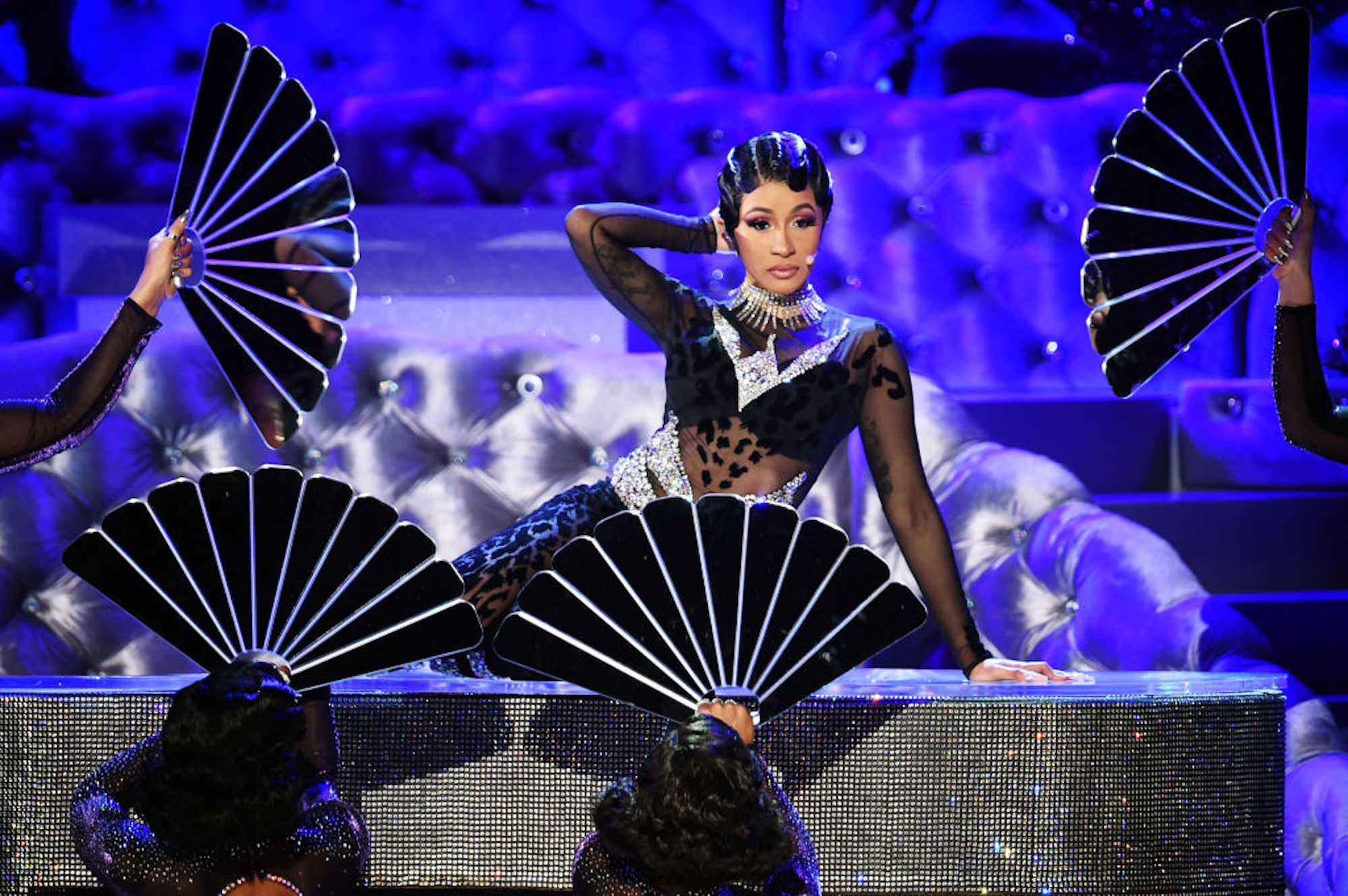People Want Cardi B to Acknowledge She Didn’t Invent ‘Okurr’

Credit to Author: Taylor Hosking| Date: Mon, 25 Mar 2019 19:43:55 +0000
When the Los Angeles Times reported Friday that Cardi B applied to have her catchphrase “okurr” trademarked for use on cups and posters in preparation for a line of merch, all hell broke loose questioning whether she actually created, or even first popularized, the term.
She’s certainly been bringing it to new heights, using it to spice up her 2019 super bowl Pepsi commercial and giving Jimmy Fallon a tutorial on how to properly use “okurr” on The Tonight Show. But even as she was taking more ownership over the term last year, some were quick to point out that Khloe Kardashian had already turned the word into a family catchphrase by early 2018, so much so that it was even used to advertise Keeping Up With the Kardashians. But, in an even more messy twist, the Kardashians may have gotten the phrase from drag and ballroom scenes.
As Out Magazine pointed out, Ru Paul’s Drag Race season six contestant Laganja Estranja used the word as a catchphrase back in 2014, bringing it to a mainstream audience. On Urban Dictionary the history of the word currently says it “originated from drag culture and popularized by Ru Paul’s Drag Race, and then by Keeping Up With the Kardashians.” The word certainly has ties to drag culture, as evidenced by Estranja tweeting at Cardi B that if she lets him dance in one of her new “okurr” commercials “TRUST & BELIEVE the QWEENS will STAN.” But drag extraordinaire Estranja himself also claimed the word first came from the ballroom community as he tried to explain why he was supporting Cardi B’s trademark: “The word #okurrr originated from the ballroom scene, but Cardi was smart enough to capitalize on it!! Props to ya MAWMA!!”
But there are a number of other entertainers with lesser-known claims to the word. In the most problematic example, Reddit users pointed out last year that white actress Laura Bell Bundy used the word frequently to impersonate black hairstylists in her 2010 YouTube sketch comedy videos, which they thought was the first time it appeared in “entertainment.” But Patrik Ian-Polk, director o the2008 rom com Noah’s Arc: Jumping the Broom, instagrammed a clip from the movie Friday claiming actor Rodney Chester (who played Alex Kirby) first coined the word. When Out Magazine caught up with Chester on Monday, he said he hadn’t heard it before he decided to ad lib it on set. And even though he didn’t turn it into a signature catchphrase at the time, he wishes Cardi would give him some credit.
“I can’t afford no lawyer or no heavy hitter to go against her or anything like that,” Chester told Out. “I can’t fight her but you know I was saying to a friend, I wish she would call me and say ‘I heard that you actually made this word up, and I’m going to send you a lil something.’ I sure would accept it.”
The exact origins of the phrase and the most meaningful vehicle that popularized it are still up for debate. But Cardi’s not trying to hear any of that. In a Friday video she posted she defended the choice to go for a trademark saying, “Bitch, white folks do it all the motherfucking time. While I’m still here, I’m going to secure all the fucking bags.” That’s big facts. But securing this particular bag could be tough, judging from the way the US Patent and Trademark Office denied Fresh Prince of Bel-Air actor Alfonso Ribeiro’s application to trademark the Carlton dance last month. And a few weeks later he dropped his lawsuit against the creators of the video game Fortnite for allegedly incorporating it, as did the other dance icons that sued with him like rapper 2 Milly and Backpack Kid.
Either way, Cardi B’s choice to move for a trademark is bringing new attention to the history of okurr and other cultural phenomena that have taken off from a subculture. Whether it’s her money to claim in this case may be the unwieldy topic for another story.
Sign up for our newsletter to get the best of VICE delivered to your inbox daily.
Follow Taylor Hosking on Twitter and Instagram .
This article originally appeared on VICE US.